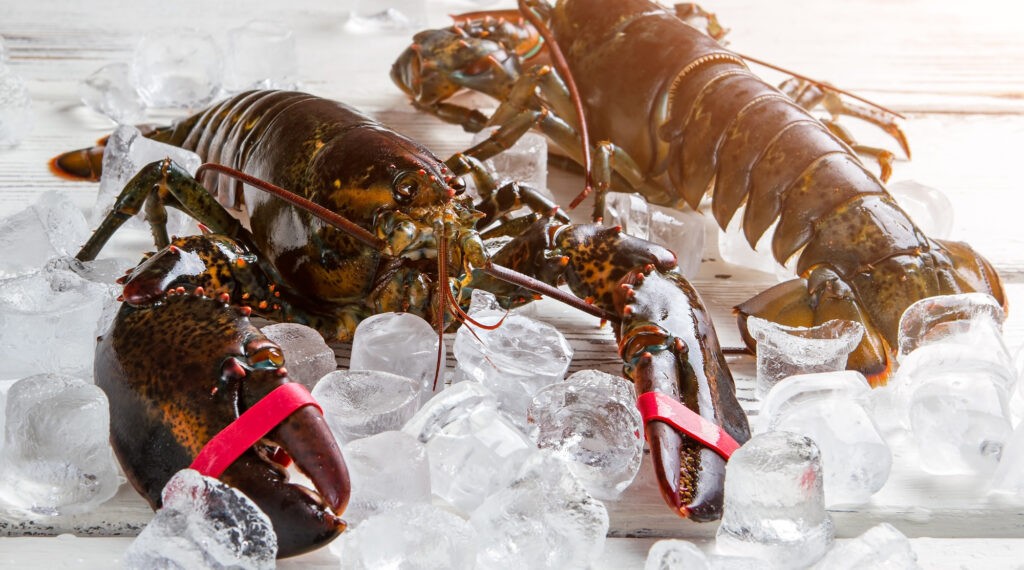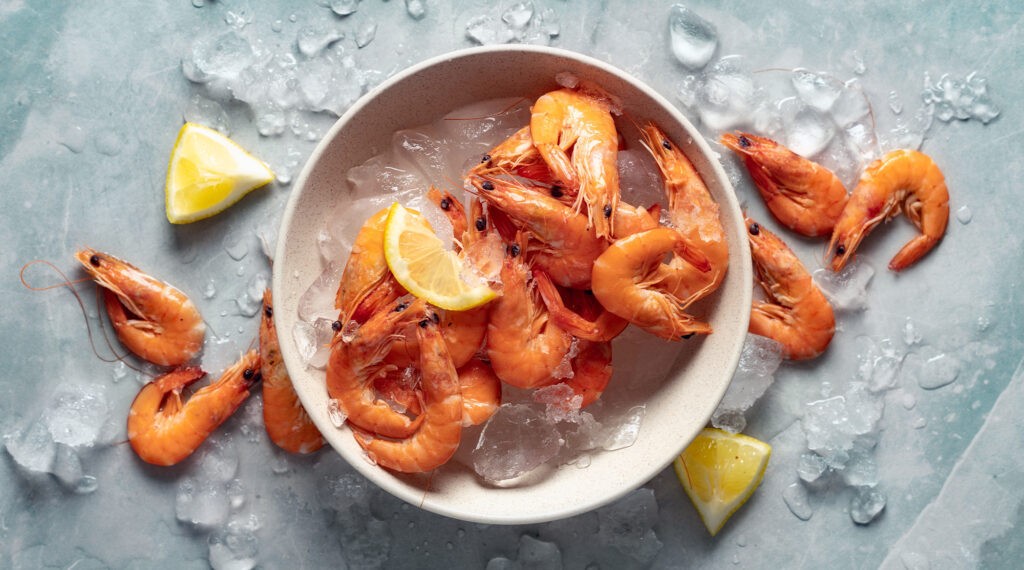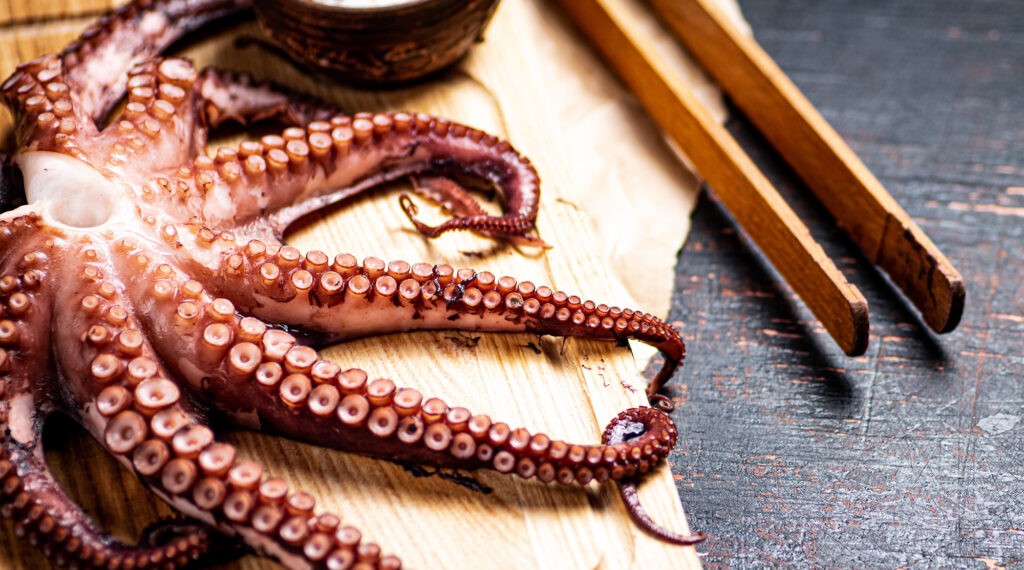Is Lobster Halal?

“Is lobster halal?” It’s a question many believers ask, especially since lobster is such a popular dish in certain parts of the United States, like New England and along the coastlines of Florida. In these areas, lobster is considered a delicacy, and it’s common to see it featured prominently in restaurants and social gatherings.
According to Sayyid Sistani, it is not permissible to eat lobster. In Islamic Laws of Food & Drink, we explained the marja’s opinions on the matter, writing: “Amphibians, reptiles, sea mammals (e.g., whales), and invertebrates (such as crustaceans [like lobster and crab], shellfish and other mollusks) are prohibited (haram), as they are not fish.”
And this idea is supported by the following hadith attributed to Imam Musa al-Kazim (p): “It is not permissible to eat catfish, turtles, or lobster” [Shaykh Kulayni, Al-Kafi, v. 6, p. 221].
صحيحة علي بن جعفر عن أخيه الإمام موسى بن جعفر (ع) قال: لا يحل أكل الجرِّي ولا السلحفاة ولا السرطان
But some may still be wondering about other seafood, like shrimp and octopus. So we will answer questions about them as well here.
Is Shrimp Halal?

You may have asked yourself, “Is shrimp halal?” According to Sayyid Sistani, only fish with scales are permissible to eat, and shrimp and prawns are grouped with such fish in hadith. This is why we have written in Islamic Laws of Food & Drink: “Among the sea animals that are not fish, only shrimp and prawns are an exception and are permissible (halal).”
So unlike the question “Is lobster halal?”, here the answer is “yes.”? Like most sea creatures that do not have scales, lobsters are not permissible to eat, but shrimp are allowed because of the exception noted in hadith.
Contact us here if you have a question about other food and drink restrictions.
Is Octopus Halal?

“Is octopus halal?” This is another question that often comes up at seafood restaurants. As we mentioned, according to our scholars, the general rule is that only fish with scales and shrimp are considered halal. So similar to the answer to “Is lobster halal?”, the answer here is “no”, meaning octopus is not halal either.
Is crab halal? No, because crabs are also sea creatures that do not fall into the category of fish with scales. So why is shrimp halal and not haram like crab and lobster? Because shrimp is categorized as a type of fish with scales in hadith, like the following:
Yunus ibn Abdi’r-Rahman narrates that he asked Imam Rida (p), “May I be sacrificed for you, what do you say about eating shrimp?” The Imam (p) reportedly replied, “There is no problem with that, and shrimp is a type of fish.”
يُونُسَ بْنِ عَبْدِ الرَّحْمَنِ عَنْ أَبِي الْحَسَنِ قَالَ: قُلْتُ لَهُ جُعِلْتُ فِدَاكَ مَا تَقُولُ فِي أَكْلِ الْإِرْبِيَانِ قَالَ فَقَالَ لِي لَا بَأْسَ بِذَلِكَ وَ الْإِرْبِيَانُ ضَرْبٌ مِنَ السَّمَكِ قَالَ قُلْتُ: قَدْ رَوَى بَعْضُ مَوَالِيكَ فِي أَكْلِ الرَّبِيثَا قَالَ فَقَالَ لَا بَأْسَ بِهِ
[Tahdhib al-Ahkam, v. 9, p. 13]
Some might also ask what the Quran says about the questions: “Is crab halal?” and “Is lobster halal in Islam?” In verse 96 of Surah al-Maidah, God says: “Lawful to you is the game of the sea and its food as provision for you and the travelers.” At first glance, this might suggest that all seafood, including crab and lobster, is permissible.
However, as Sayyid Mohammad Baqir Kashmiri points out, this verse is specifically discussing the permissibility of fishing while in a state of ihram. And if we read until the end of the verse, this becomes clear, as it goes on to say, “You are forbidden the game of the land,” a prohibition that does not apply when one is not in ihram.
Sayyid Kashmiri concludes that the verse does not provide a blanket allowance for consuming all sea creatures. And in hadith we learn that only fish with scales and shrimp are permissible to eat.
Take, for example, the following hadith, in which Muhammad ibn Muslim reports:
“I asked [Imam Baqir], ‘May God have mercy on you, we are brought fish that do not have scales.’ He replied, ‘Eat what has scales from the fish, and do not eat what does not have scales.’”
[Al-Hurr al-Amili, Wasail al-Shia, v. 24, p. 127]
محمد بن يعقوب، عن عدة من أصحابنا، عن سهل بن زياد، وعن محمد بن يحيى، عن أحمد بن محمد جميعا، عن ابن محبوب، وأحمد بن محمد بن أبي نصر جميعا، عن العلا، عن محمد بن مسلم، عن أبي جعفر (عليه السلام) – في حديث – قال: قلت له: رحمك الله، إنا نؤتى بالسمك ليس له قشر، فقال: كل ما له قشر من السمك، وما ليس له قشر فلا تأكله.
More Questions Like “Is Lobster Halal?”
Now you know the answer to: “Is lobster halal?” It’s not halal. But naturally there are all sorts of other questions about food and drink that come up for us in restaurants and supermarkets in North America. Some similar questions are:
- Are oysters halal? Oysters are not halal, as they are not fish with scales and thus fall into the general category of seafood that is not allowed.
- Are clams halal? Similarly, clams are also not halal, because, like oysters, clams are not fish with scales, so they don’t meet the general criteria for permissible seafood.
- Is sushi halal? Whether sushi is halal or not depends on what’s in it. If the sushi contains fish with scales, like salmon or tuna, and the other ingredients are halal (no alcohol or non-halal meat), then it would be permissible. However, if the sushi contains shellfish other than shrimp (like crab) then it is not permissible.
Still have questions? Here’s our advice for getting them answered in the best possible way.If there are other foods about which you have uncertainty, first refer to our work on Islamic Food & Drink here.
If you don’t find your answer there, reach out to your local scholar or other trusted religious authorities to get clarification. And, of course, you can always reach out to us here with your religious questions, and we’ll get back to you soon insha’Allah!

Leave a Comment:
You must be logged in to post a comment.